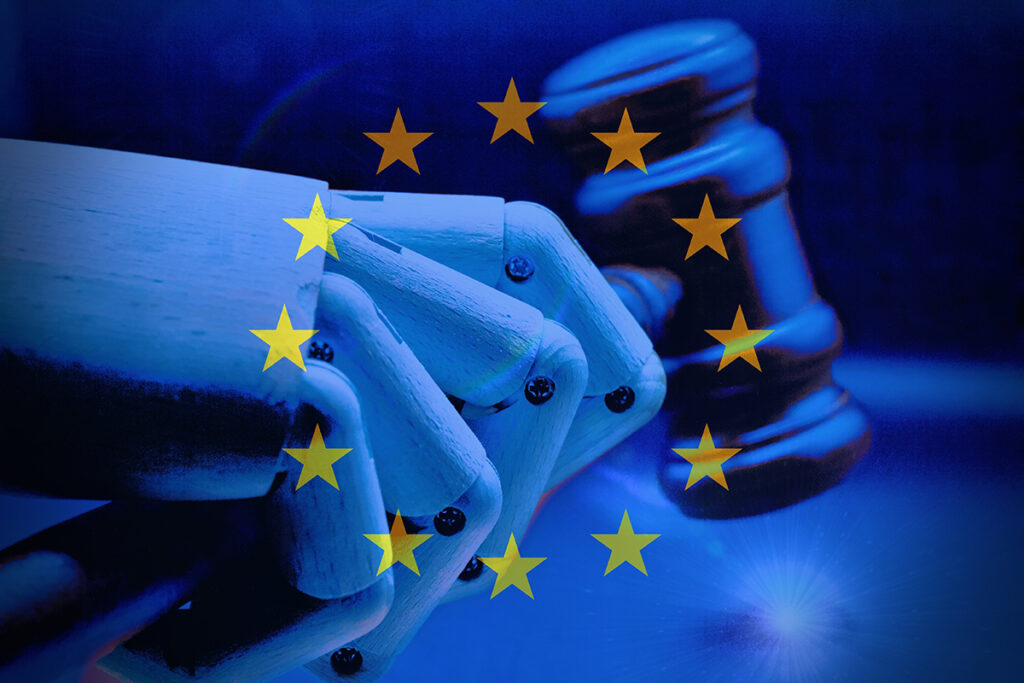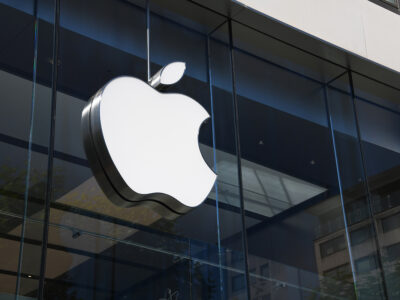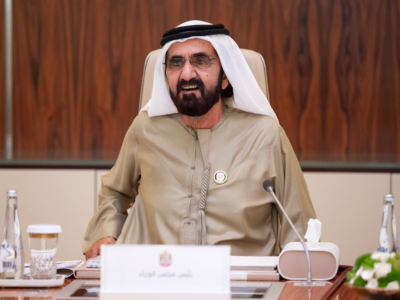As generative AI tools flood social media with viral trends mimicking the styles of iconic brands like Studio Ghibli, artists, legal and technology experts are warning that a lack of clear regulation is exposing creators to copyright risks, data misuse and cultural erosion.
In the United Arab Emirates (UAE), where AI is a national priority and regulatory frameworks are rapidly evolving, experts say the challenge lies in balancing innovation with stronger protections for the country’s creative community.
“There’s an obvious threat to jobs, wages, and livelihoods as the perceived value of niche and bespoke art is diluted by oversaturation,” Declan McGlynn, Chief Creative Officer at Voice-Swap AI, told Arabian Business in an exclusive interview.
Legal, ethical challenges of AI-generated content
The rapid rise of AI-generated content is creating difficult legal and ethical questions for artists and rights-holders worldwide, he said, adding that the intellectual property of brands like Studio Ghibli—whose creative identity is rooted in scarcity and craftsmanship—could be “significantly diluted, and the mystique and magic surrounding their creative process trivialised.”
“The same logic applies to any music artist, film, or TV franchise that has created its own sonic or visual identity. All this leads to the negative financial impact to the original creators, while others are monetising their works,” he explained.
McGlynn further highlighted the complexities of current copyright laws concerning AI-generated art. “It’s an open question that currently varies by territory,” he said.
While some jurisdictions are considering exemptions that allow AI models to train on copyrighted content without licensing, such moves have faced “significant pushback” from the creative industries, according to McGlynn.
Much will depend on the outcomes of high-profile legal cases such as The New York Times vs. OpenAI and the RIAA vs. Suno and Udio, which are expected to clarify how rightsholders are compensated when their work is used to train AI models.
And while some territories, such as the EU, have already introduced comprehensive AI regulations, other markets, including the UAE, are still shaping their legal frameworks.
“The EU has already adopted the AI Act, which is the first comprehensive regulation on artificial intelligence in the world. This move has set a significant precedent for AI governance, focusing on ensuring the ethical and safe use of AI across various sectors, including creativity,” Marina El Hachem, Associate at BSA Law told Arabian Business.
“While the UAE is likely to follow suit with similar regulations to address the impact of AI on artists and intellectual property, there’s no clear timeline on when these regulations will be introduced. As of now, we’re still awaiting visibility on when the UAE will release its own framework to address these emerging challenges,” she added.

UAE’s proactive approach to AI and data protection
Nevertheless, the UAE has taken significant steps to modernise its IP laws to address the challenges posed by AI-generated content.
The Federal Law No. 38 of 2021 concerning Copyright and Neighbouring Rights, which came into force in January 2022, is considered one of the toughest in the world.
It offers clearer definitions of copyright ownership, including in cases involving digital and collaborative work, and introduces stringent enforcement measures against infringements.
However, while the UAE’s updated Copyright Law came into effect in 2022, it was not introduced specifically in response to AI, according to El Hachem.
“Its timing has proven useful, because it offers a stronger, clearer legal structure for artists working in today’s increasingly digital and AI-integrated creative environment,” she said.
In addition to copyright reforms, the UAE has also enacted the Federal Decree-Law No. 45 of 2021 on the Protection of Personal Data, which also came into effect on January 2022.
This law establishes a comprehensive legal framework for safeguarding personal data in the UAE and applies to data controllers and processors both within and outside the country who handle the personal data of UAE residents.
It defines the rights and duties of all parties concerned and sets out requirements for the cross-border transfer and sharing of personal data for processing purposes.
The UAE’s commitment to AI innovation is further demonstrated by the establishment of the Artificial Intelligence and Advanced Technology Council (AIATC) in January 2024.
The council’s focus is to develop and implement policies and strategies related to research, infrastructure, and investments in the realm of artificial intelligence and advanced technology within Abu Dhabi.
“These developments show that while AI regulation is still evolving in the UAE, the country is setting the stage for more structured oversight in the future, which could eventually include protections for artists and their work in the AI space,” El Hachem added.

Balanced AI regulation a must to protect creatives
Despite these advancements, experts stressed the importance of balanced regulation that protects artists without stifling innovation.
“There’s a delicate balance between safeguarding intellectual property and encouraging technological advancement. On one hand, artists need protection from unauthorised use of their work, especially when AI can easily replicate, modify, or build on existing content without proper attribution,” BSA’s El Hachem explained.
“On the other hand, AI thrives on data and the ability to learn from vast amounts of information, including creative works, which can lead to concerns about over-regulation that stifles innovation and the potential of AI.”
To navigate this balance, she suggests that artists take proactive steps to protect their work, such as registering their works with the Ministry of Economy, including explicit terms in licensing agreements that prohibit the use of their works by AI technologies without prior consent, and implementing Digital Rights Management (DRM) technologies to control and restrict the use of digital copies of their works.
Viral Studio Ghibli, action figure ChatGPT trend raise privacy concerns
The implications of viral AI trends extend beyond copyright and artistic ownership, particularly in areas of personal data privacy.
Santiago Pontiroli, Lead TRU Researcher at Acronis explained that AI companies may use this content to train their models, even if users aren’t aware of it.
“Viral AI trends like the Studio Ghibli or action figure challenges might seem harmless and fun, but they can expose more personal data than users realise. When people upload photos, they often share much more than just an image; things like facial features, locations, and even device info, can be collected in the background,” he said.
The situation becomes more concerning when combined with the increasing sophistication of AI-generated deep-fakes and voice cloning technologies.

“The terms and conditions are usually long and vague; most users skip reading them. By clicking ‘accept’, they might unknowingly give companies the right to store, reuse, or commercialise their photos,” he said.
“These images can end up in training sets for facial recognition, style transfer, or generative AI. In some cases, future AI tools could mimic people’s likenesses or personal traits.”
He pointed out that while the UAE’s Federal Decree-Law No. 45 of 2021 is a strong first step in data protection, continuous updates and public awareness campaigns are crucial as technology rapidly evolves.
“Users, meanwhile, can take small steps to protect themselves (like avoiding identifiable backgrounds or using anonymised accounts), but the bigger responsibility lies with companies to clearly state what’s happening with this data,” he said.
What can AI companies, users do to stay ethical?
For McGlynn, one of the broader cultural risks of unregulated AI use is the potential erosion of artistic heritage and culturally significant art forms.
“Generative AI could accelerate cultural appropriation, especially around art and music styles that are bespoke to one country, region or culture,” he said.
“If it’s no longer required to seek out the services of an individual artist, or group of artists, who are specialists in a certain style of art or music, that style and art form could be lost over generations,” he added.
McGlynn suggested that the future of AI in creative industries lies in building tools that complement rather than replace human creativity.
“By building tools that complement existing workflows rather than replacing them, and collaborating with creatives to create models that fairly remunerate them for their data.
“AI doesn’t have to replace creativity, it can be a tool that enhances creative expression if it respects the rights of creatives, artists, designers, filmmakers and more,” he said, adding that the market is likely to regulate itself in many ways.
“Rightsholders will not want to work with companies who are stealing from them – as is made evident by the RIAA’s lawsuit against generative music platforms Suno and Udio – so we are likely to see a shift towards partnerships between rightsholders and companies – like Voice-Swap – who are treating rightsholders with respect and compensating them for the use of their training data,” McGlynn added.
How the UAE is strategically building its AI governance framework
While other jurisdictions have taken bolder steps — like the EU’s AI Act or proposed NOFAKES Act in the US — both El Hachem and McGlynn noted that the UAE is taking a considered, strategic approach.
As El Hachem explained, the UAE’s AI governance is evolving through a patchwork of decrees, councils and initiatives, but its focus on AI as a national growth sector means more structured AI-specific protections for artists and creatives could soon follow.
“The UAE, like many other nations, will need to carefully navigate these challenges to ensure that artists’ rights are protected in this new era of AI-driven creativity,” she said.
For now, experts agree that awareness, vigilance, and responsible AI model development — alongside the UAE’s steadily advancing legal framework — will be key to preserving both creative livelihoods and cultural heritage in the AI era.








